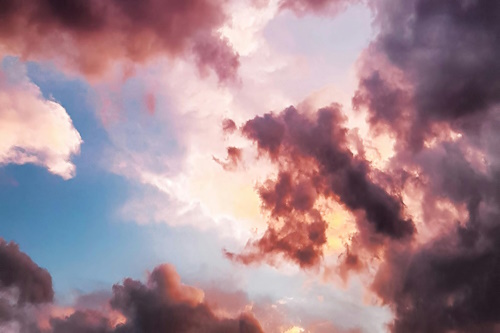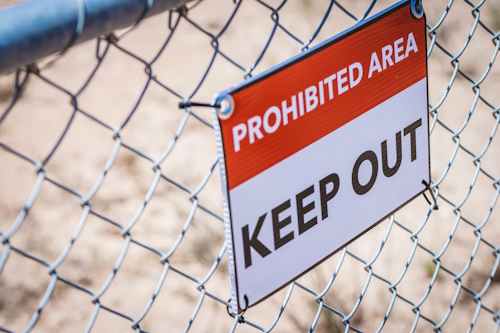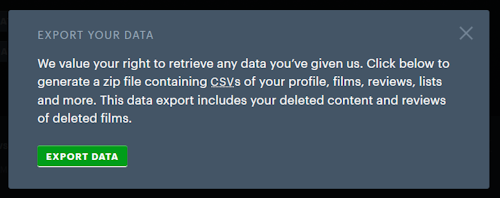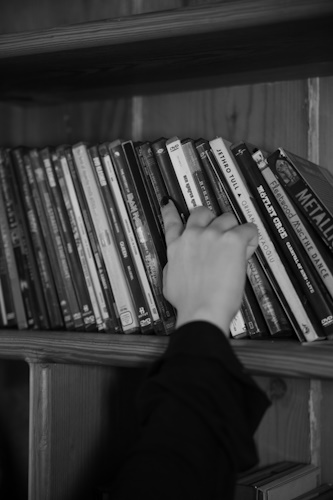(Un)clouded judgement
The Internet is going into shit. It's not exactly new, but it seems to be accelerating. And I'm not going to list everything that's wrong. I haven't got the time.
This article is both an observation and a reflection on my part. About my use (and possibly yours) of the cloud.
 Source : eberhard grossgasteiger
Source : eberhard grossgasteiger
I use online tools. Lots of them. To communicate, to broadcast, to exchange. But I'm trying to think about it more and more. To orient my use towards offline. But why? To remain master of my own use and owner of what I do. To be able to do what I want with it.
Imagine
You write. And all your writing is stored in the cloud. You use an application that connects to it, lets you write easily, from any device, share it with whoever you want, easily transform these texts into epub, sell them, distribute them, get feedback, version them. A delight of a tool. Which may have been free at first. But then it became a paid service for certain features, or once a certain volume had been reached.
 Source : Michael Zunzio
Source : Michael Zunzio
And then, one day, a text disappeared. You may not realize it. But strangely enough, it's a text that's rather politically oriented, assertive. Or perhaps it's an erotic text exploring unconventional relationships. Or maybe someone just flagged your content, and poof. Gone. Or, all of a sudden, you have to pay a lot more to keep your access, and you can't afford it.
Don't imagine too much, these scenarios already exist. Lionel Davoust linked this article that talks about it.
Trust No One
“When it's free, you're the product.” And even, sometimes, when it's paid for. What are our data and creations worth? Especially when we entrust them to someone else. Because using an online product, with rare exceptions, is tantamount to entrusting what you do with it to someone else.
I use online products myself, because I'm not perfect and because certain uses make it convenient. I sometimes use Google Docs for document sharing, for example. But it's never my main source. I keep a copy of my texts safe. And when I decide to use an online service, I check it out: what are the import and export possibilities? Can I retrieve what I create?
For example, I recently signed up for letterboxd, where I log the movies I watch, the movies I want to see, the recommendations I get. But I knew when I set foot on the site that I could easily retrieve the data and lists I'd compiled there. If ever the service doesn't suit me anymore, if I want to do something else with it, if I want to switch somewhere else: I can.

Similarly, all my role-playing creations - games, scenarios and translations - are written locally. I sometimes transfer some to online tools, for sharing, proofreading or other purposes. But originally, every text is saved in Markdown format on my workstation. I use Obsidian to edit them, but I could change overnight with very little impact. Because the files are in an open format. It's a totally conscious choice that I've made, which has required me to do some testing.
The day Obsidian's terms of use no longer suit me, I'll move on to something else. All my essential data will still be available. If all your work is online, or uses proprietary software with a proprietary format, think again. Set up backup procedures, not just for your files, but for the raw data, in accessible formats.
Physical and Digital
In 2024, I've largely returned to consuming physical media. I make great use of the local library, of its DVD bin, but I've also taken the step of thinking about which TV shows I want to possess, in the sense of seeing them again soon, or in a few years' time, or in the sense of sharing them with my close friends and family. And on the recent ones, available on streaming platforms, which I use extensively, I wonder if this will be possible at all. It's discouraging wanting to dive back into a show, only to discover that it's only available on yet another platform that you have to subscribe to (if you can, thank you regional locks), and that maybe in a few months it'll all disappear. And it's worrying, from a cultural point of view.
 Source : Eyüpcan Timur
Source : Eyüpcan Timur
Of course, not everything can be preserved, and many things have disappeared in the past. And it's not possible to see, read or listen to everything. But there are things that are dear to me, that I want to be able to see, read and listen to again and again. I don't want to be tied down to an online account somewhere, which overnight can deny me access to them.
Buy CDs of your favorite bands (plus, they'll earn more than listening to them on Spotify). Get DVDs of your favorite movies. Make sure you have a way of enjoying these media other than online. Disconnect yourself.
I don't listen to anything online, for example. I listen to the radio (well, sometimes online). My music library is made up of CDs and files that I transfer between my devices. I download the podcasts I want to listen to, and then think about whether to keep them or delete them.
Think about it. Which album would you be distressed to no longer find on your favorite online service? Do you have one? What if you bought it and actually owned it?
Some leads
Okay, this article was written on the fly. With no real plan of action or reflection. But it was intended to set out a thought process I'm currently engaged in about my uses, and those of those around me.
Before I start using a piece of software or a service, I start asking myself the question: “What will happen if the service stops?” For software, for example, I try to force myself to look at open-source software. But also offline software, with no connection required. Which can continue to run on my environments without requiring an update that would block my use.
Digital independence. It's far from a given. It's padlocked, but you can get it piece by piece. Without necessarily being a computer scientist (which I am, that helps).
Don't be afraid to ask me about these subjects on social networks or elsewhere. Other articles around the subject could emerge, to discuss more practically certain uses and what I've put in place.
